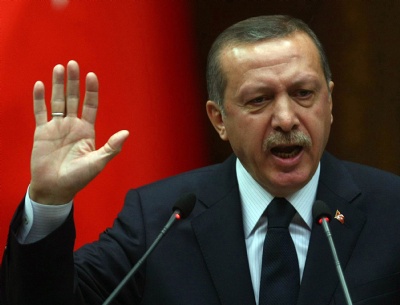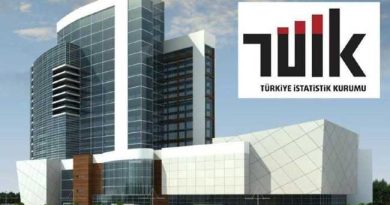YSK Decision to Ban Some Kurdish Politicians from Elections Leads to Crisis
A decision by Turkey’s top election board to bar some prominent Kurdish politicians from the upcoming elections has sparked a new political crisis in already-tense Ankara as all parties scrambled to find an immediate exit strategy.
Prominent leaders of the Kurdish movement such as Leyla Zana and Hatip Dicle, as well as Gultan Kışanak and Sebahat Tuncel, who are already in Parliament, were among the people affected by the Supreme Election Board, or YSK’s, decision late Monday.
The board announced that 12 independent candidates, seven of them backed by the pro-Kurdish peace and Democracy Party, or BDP, could not run in the June 12 general elections due to earlier convictions, though it later indicated that some of the decisions could be reversed if certain conditions were met.
In its reasoning released Tuesday, the YSK said it cancelled the candidacy of 10 applicants, six of them BDP deputies, because they did not submit their documents regarding the court decisions that reinstated their right to vote and be elected after being convicted of certain crimes.
The YSK based its decision on Article 76 of the Constitution, which stipulates that those who have been convicted of involvement in terror-related acts or encouraging terrorist acts are not eligible to run for election. The article also bars people who have been sentenced to a prison term totaling one year or more, excluding involuntary offences, or to heavy imprisonment, from running as a deputy in elections.
The YSK said in a statement that on Wednesday it would review additional documents submitted by some of the barred candidates. The board also said if the necessary documents are submitted and approved, then the candidates could stand for election.
BDP officials have issued a furious response to the decision, threatening to withdraw from the June elections if the situation is not remedied. “We are even considering pulling back from the elections. We’ll announce our final decision Thursday after a meeting with all our independent deputies,” BDP co-chair Selahattin Demirtaş told reporters late Monday.
Call for total withdrawal
Demirtaş met with 66 independent candidates who plan to run for Parliament from Southeast Anatolia and called on all parties to withdraw their nominees to protest the unfairness of the YSK decision.
Kışanak meanwhile described the YSK’s decision as a political move and said the countermove would also be a political one.
The YSK’s decision also kicked two minor parties, the Freedom and Solidarity Party, or ÖDP, and the Homeland Party, out of the elections, as their candidates did not submit the proper documents outlining the status of their mandatory military service.
The majority of politicians interpreted the YSK’s decisions as undemocratic and potentially harmful to the safety of the general elections, immediately launching an effort to find a way to bring the banned candidates back into the parliamentary race.
Two options on the table
As of late Tuesday, there were two options being discussed by the political parties. The first was to go to Parliament and amend all necessary constitutional articles and laws to allow these politicians to stand in the elections. Originally voiced by the BDP’s Demirtaş, this option was strongly backed by Republican People’s Party, or CHP, leader Kemal Kılıçdaroğlu.
“Do we have the will to solve the problem? If we have it, we’ll surely be able to do so,” Kılıçdaroğlu said, calling on the ruling Justice and Development Party, or AKP, to back the idea.
Kılıçdaroğlu’s proposal included reducing the election threshold to a reasonable level – the party earlier suggested 5 percent – and removing all legal obstacles before Kurdish politicians through comprehensive amendment of the laws on political parties and elections.
The CHP chief also proposed passing provisional articles to bypass the constitutional principle that “amendments related to elections can only be implemented one year after being enacted.”
“The political parties should first declare their position. Are they in or not?” said Kılıçdaroğlu.
His proposal, however, was not supported by either the ruling AKP or the Nationalist Movement Party, or MHP.
“This is purely a reflection of a populist understanding. We do not see the CHP’s proposal as realistic,” deputy parliamentary group leader Mustafa Elitaş told reporters.
Another senior AKP official, Bekir Bozdağ, said the idea “was not applicable.”
MHP leader Devlet Bahçeli said it is the parties’ duty to appoint candidates who are eligible to enter the elections. “We should respect the YSK’s decisions,” he said, criticizing the CHP’s call for an emergency parliamentary session to sort out the issue
Second option
A second option envisions making individual applications to the YSK for each of the 12 barred names by submitting legal documents showing their eligibility to run in the elections. Legal experts and politicians say at least 10 of the affected figures could be helped by a court document showing the restitution of their rights. Would-be candidates Kışanak and Ertuğrul Kürkçü have already taken their criminal records while Zana’s application was refused. A Diyarbakır court said it was no longer arranging to create such documents after an amendment to the Penal Code in 2005.
The submission of these documents would not, however, solve the problem automatically. The appeals would be reviewed by the same board and it is very likely the YSK would insist on upholding its original decision.
Tuncel and Şerafettin Efe have no chance to benefit from this option even if it were to be successful. The YSK said the decision on Tuncel’s sentence was confirmed by a court July 3, 2007, and the probation process has not finished due to her time in Parliament. Efe has not paid the candidacy fee.
The heart of the problem
Shortcomings in Turkish election laws and the high election threshold are at the heart of the problem, according to legal experts who called for a reduction in the 10 percent threshold for a party to be represented in Parliament.
“The real problem is the election threshold. It is the 10 percent election threshold that forced the BDP to run in the election via independent candidates,” former Justice Minister Hikmet Sami Türk said Tuesday.
Tuesday, April 19, 2011
ANKARA – Hürriyet Daily News





